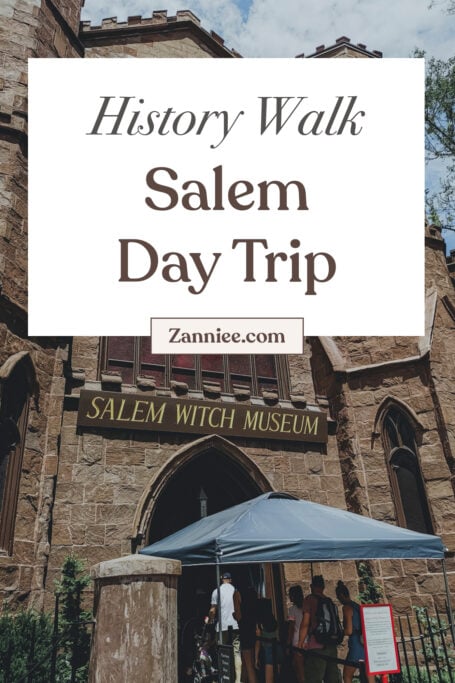Witch City: A Walk Through Salem’s Brutal History
I have seen every episode of The Travel Channel's Haunted USA. After I watched the one on Salem, Massachusetts, the small historical city was high on my bucket list. I got the opportunity sooner than expected. When I was in Boston earlier this summer, I carved out a day trip, but made sure to get out of Salem before sunset. As much as I'm fascinated by spirits and sorcery, I'm also scared as heck of this stuff.
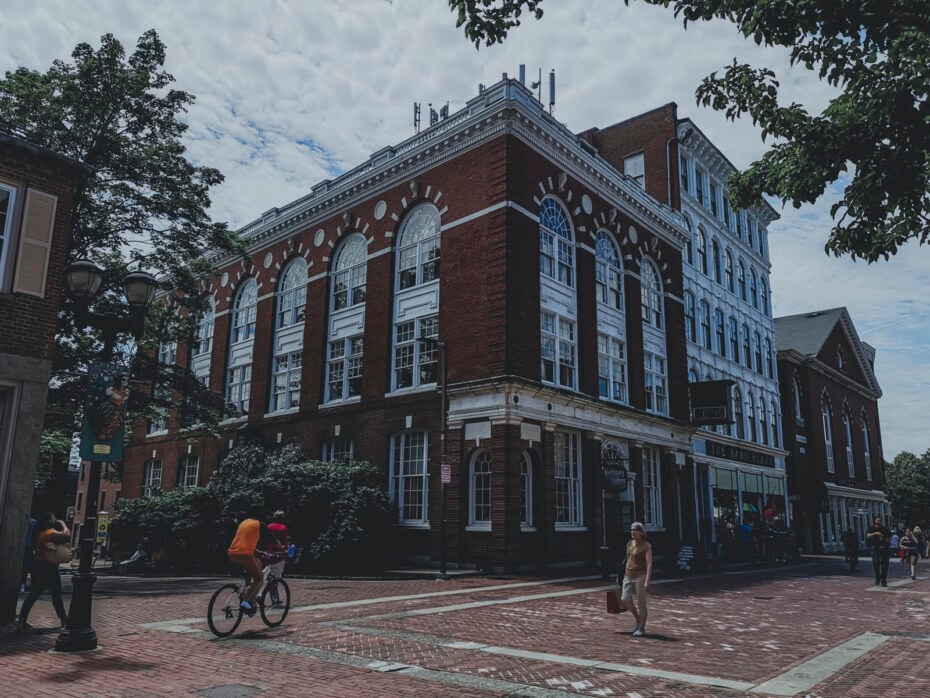
The train from Boston only took half an hour, pulling into Salem's town center. I came during the height of summer, on one sunny and sweaty day, so my first impression was that the place seemed more quaint than creepy. Plenty of tourists were around, but it wasn't terribly busy on a weekday. It's a different story around Halloween when 500,000 people descend upon Salem throughout the month of October and all the hotels are booked out months in advance.
As I poked around the shops in Salem, it did feel as if the town was perpetually celebrating Halloween. Aside from souvenir and costume stores, I passed kitschy tourist shops dedicated to magic, vampires, wands, and, of course, witchcraft.
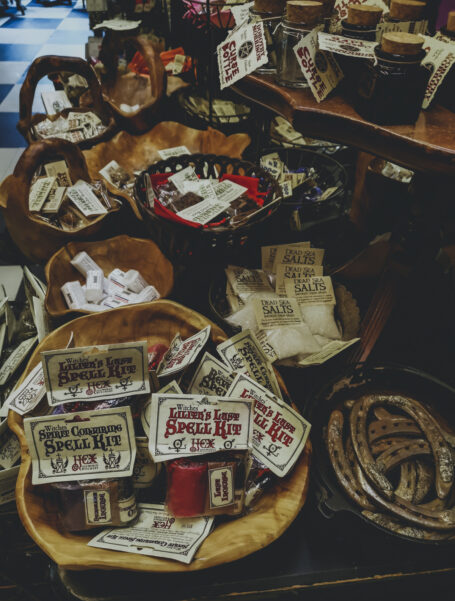
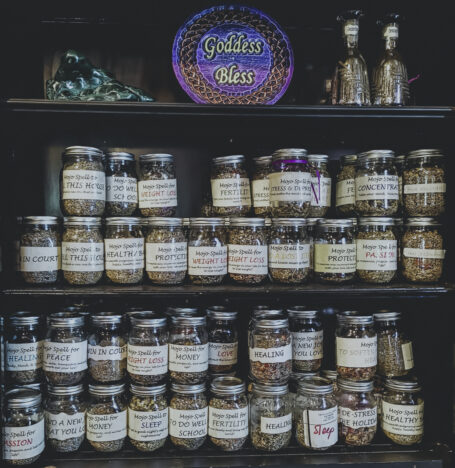
The most touristy thing to do here is to visit The Salem Witch Museum, the one in a former church building. I knew this, but somehow I still ended up going to a different museum, The Witch History Museum.
After I emerged and realized this wasn't the museum I intended on visiting, I already learned enough not to want to go to another one. While I can't compare the two because I haven't been inside The Salem Witch Museum, The Witch History Museum is likely to be the creepier one because we were basically in a dungeon surrounded by life-sized wax figures. Some of them seemed to stare directly into my eyes.
If you don't already know Salem's history, in 1692, several teenage girls were diagnosed as bewitched by a physician after exhibiting hysterical fits, their source still a mystery today. The girls accused several local women of being witches, and the townspeople quickly took advantage of this mass paranoia by falsely accusing their personal enemies. Over 200 people were accused, ultimately leading to the deaths of 20 people (14 women and 6 men) and two dogs (who were believed to be "familiars" to help the witches carry out their evil deeds).
Ultimately, the witch hunt was abolished, the higher courts not allowing "spectral evidence," and any remaining witches awaiting trial were ruled innocent. The people of Salem regretted their actions, some apologizing and others fleeing the city.
During the museum tour, I learned some tidbits we don't usually hear about otherwise. One person I found interesting was a reverend named Cotton Mather, a Harvard man with a brilliant mind. His strict religious views, fear of the devil, and his absolute belief in witches helped condone the witch hunt. Four years before the trials, he wrote a book called Memorable Providences Relating to Witchcraft and Possession that was well received. Because he had influence in the witch hunt, he was denied the presidency of Harvard College, a position his father held. Undeterred, he went on to be the co-founder of Yale.
I also learned that the "witches" were not burned at the stake—that happened in Europe—but executed by hanging. 19 people were hanged at Proctor’s Ledge near Gallows Hill and one was slowly crushed to death.
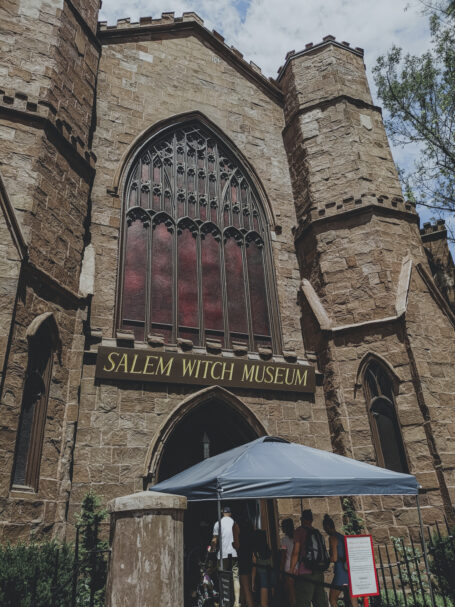
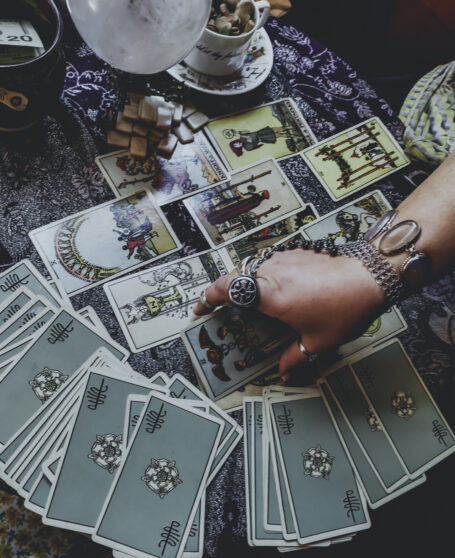
After learning about all this torture and murder, I ate lunch. After lunch, I had some time to kill before my walking tour. I passed by the Hex shop and saw a woman giving a psychic reading by the window. Psychic readings are not something I seek out, but I had a good feeling so I went inside the shop and booked a 15-minute reading with Yulia Applewood.
I was open to whatever kind of reading she wanted to do, so she read my palms and had me pull some Tarot cards. Our non-dominant palm shows what we come into this life with: natural skills, abilities, and potentials. The dominant hand shows where we are in relation with these things, and significant past and future events. The lines can change over time.
She said I have very strong natural intuitive ability, but I usually fight it by taking a step back and looking at things from an analytical perspective—true. She also said it seems like I've been developing my intuitive skills more recently because it has gotten stronger—very true with all the energy healing courses I've been taking over the past year and a half—and my precognitive skill is strong overall. A lot of the reading focused on my career, which was pretty fascinating. The future is always changing, so I take predictions with a grain of salt, but I like hearing them to see if I'm on the right track or to get some new insights or guidance.
At the end of the session, she gave me some blessed mojo beans to either hold on to for good luck or to make wishes with. My experience was really fun and I ended up wishing I had booked a longer session.
Like with any profession, there are good psychics, mediocre ones, and bad ones, so go with your gut if you're looking for a reading. Even better to get recommendations. If you're going to take everything a psychic says as gospel, then don't do it. At the end of the day, you're still in control of your future. A psychic prediction is not fixed unless you make it fixed.
In general, I do think the truly gifted psychics and mediums are so cool. They inspire me to improve my own skills.
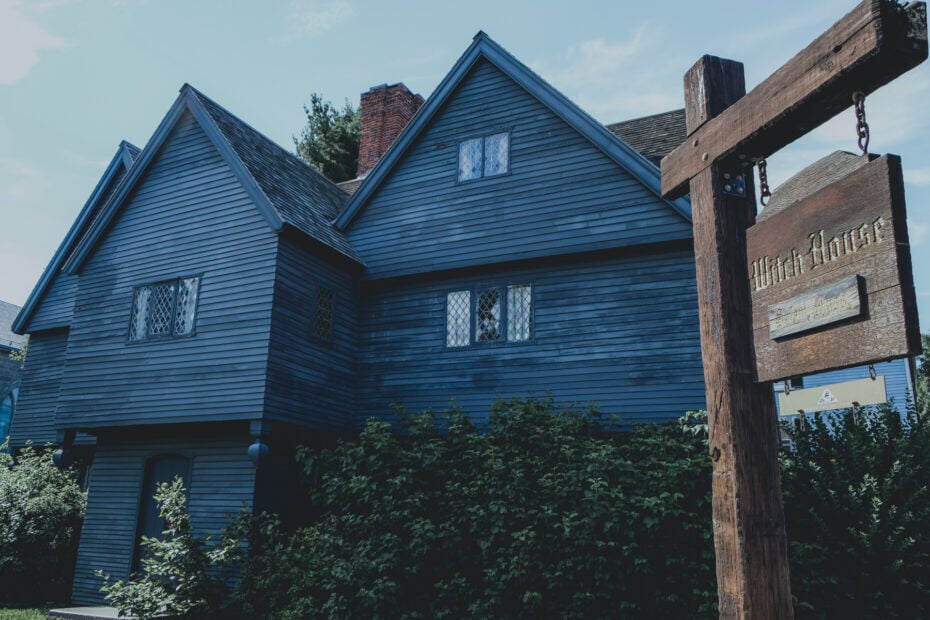
The Salem walking tour I had booked ahead of time on Airbnb, which lasted over two hours. My tour guide Beth not only had extensive knowledge of the witch trials, but also Salem's general history, architecture, folklore, and other murder and ghost stories.
I learned about the murder of Captain Joseph White standing in front of his own former home, but the most haunted house in Salem is The Joshua Ward House. George Washington used to stay here on his visits.
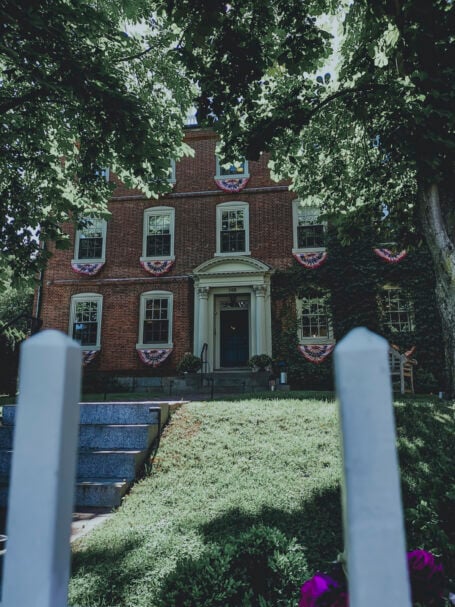
Recently this house has been converted to a luxury boutique hotel called The Merchant, so perhaps it's less haunted now. The historic three-story brick house was built on the same site as the former home of Sherriff Corwin, who was responsible for arresting and executing the victims during the Witch Trials. Corwin was known to torture his victims in the most gruesome ways until he forced confessions out of them.
Giles Corey, Corwin's last victim, was a farmer accused of being a warlock. He was the one slowly crushed to death because he would not plead innocent or guilty when accused, much to Corwin's frustration. Corey knew no matter what he said, he would be killed, so he only asked for more weight to be added, heavy rocks to kill him faster. Rumour has it that Corey cursed Corwin and the town of Salem before he died. Events such as Sherriff Corwin's sudden death of a heart attack at age 30 and the Great Salem fire of 1914 feed that legend.
Near the end of our tour, we went to the Salem Witch Trials Memorial, where visitors can reflect on the tragedy. The victim's protests, taken directly from court transcripts, are inscribed in stone slabs. "God knows I am innocent."
Before I came to Salem, I had assumed it would be a "fun" haunted city similar to New Orleans where the dead come out to play. The entire city of New Orleans is haunted, but its dark history and legends contribute to its lively energy. Salem feels more sombre. It's only haunted in pockets, the places where innocent people were tortured or killed. They do not want to party.
While the Witch Trials of 1692 have left an indelible stain on Salem, its reputation for witchcraft, however unproven, attracts new residents intent on taking witchcraft back for themselves. Whether Giles Corey's curse on the town is still in effect or not, people are drawn to Salem's magical energy.
Personally, I don't feel the magic. The air of torture and misery still hangs in the air despite the sunny days. I consider it a place of tragedy, a dark chapter in history not to be forgotten, which is why I recommend Salem as a place worth visiting. I had planned on buying a coffee mug to take home, but as I looked at the city's logo of a witch riding on a broomstick, I placed the mug back on the shelf. I decided it was disrespectful to the victims to buy souvenirs capitalizing on their suffering. And party here on Halloween? No thanks. But then again, I stay home on Halloween because the holiday creeps me out. Like I said, I'm scared of this stuff.
